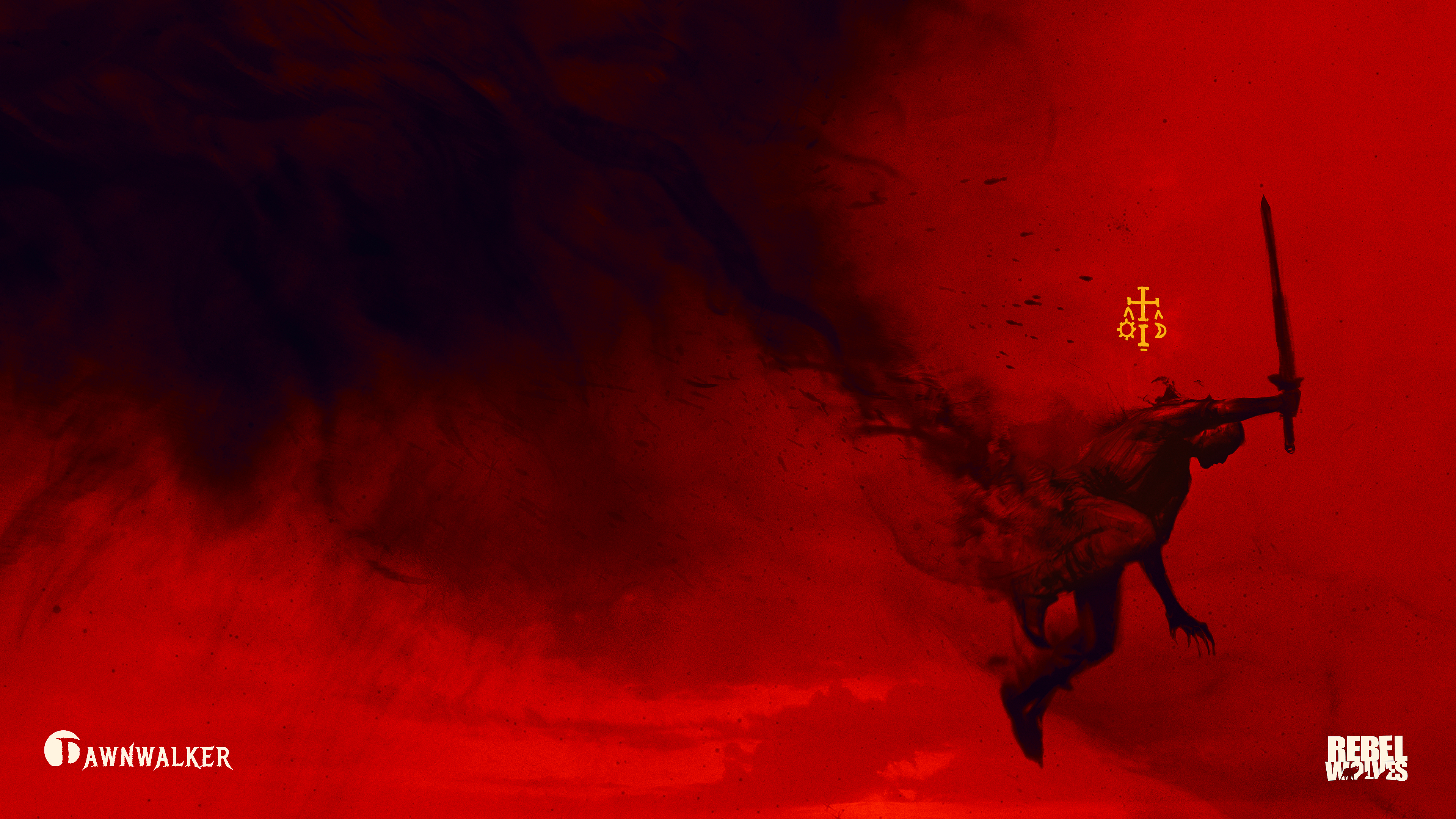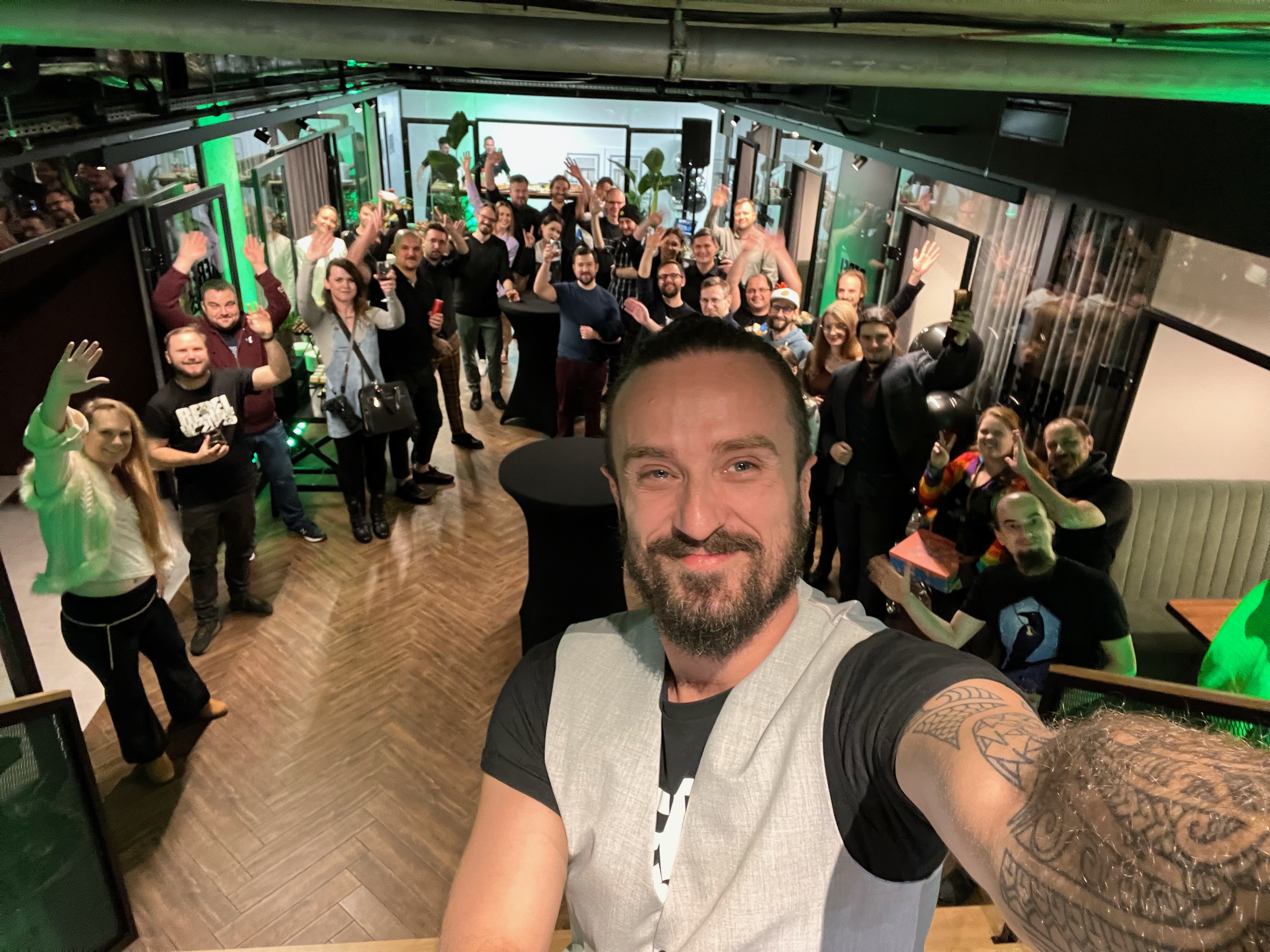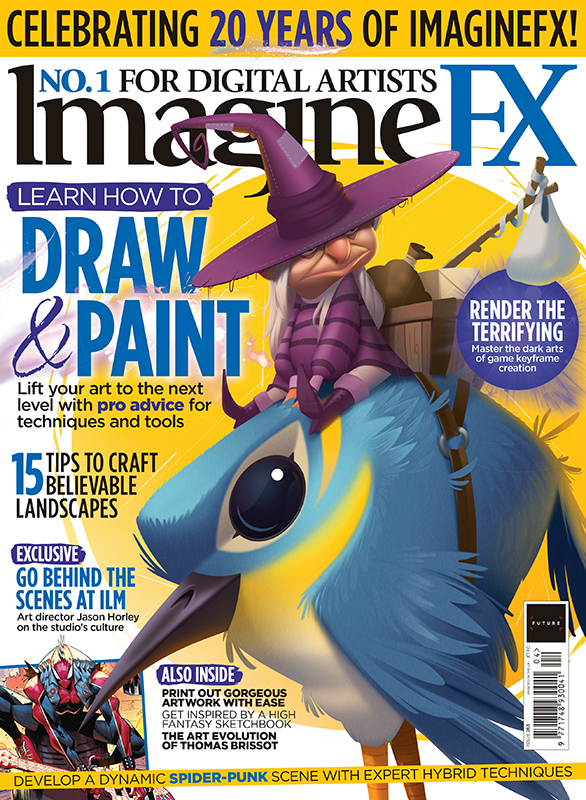
Daily design news, reviews, how-tos and more, as picked by the editors.
You are now subscribed
Your newsletter sign-up was successful
Want to add more newsletters?

Five times a week
CreativeBloq
Your daily dose of creative inspiration: unmissable art, design and tech news, reviews, expert commentary and buying advice.

Once a week
By Design
The design newsletter from Creative Bloq, bringing you the latest news and inspiration from the worlds of graphic design, branding, typography and more.

Once a week
State of the Art
Our digital art newsletter is your go-to source for the latest news, trends, and inspiration from the worlds of art, illustration, 3D modelling, game design, animation, and beyond.

Seasonal (around events)
Brand Impact Awards
Make an impression. Sign up to learn more about this prestigious award scheme, which celebrates the best of branding.
Rebel Wolves is a bold new game developer created by former members of award-winning studio CD Projekt Red. With a track record of working some of the biggest games in recent years, including Cyberpunk 2077 and Witcher 3: The Wild Hunt, there's a lot of buzz around what this new team will create.
Rebel Wolves is working on a new fantasy role-playing adventure that will leverage the experience of the team, called Dawnwalker. To gauge how Rebel Wolves will approach development, I ask its new creative director Mateusz Tomaszkiewicz his views on the state of the industry, his approach to game art, including views on using AI, and what he looks for in new artists.
These are crucial issues for game artists and devs, and we've already heard from what indie game developers think of AI as well as a mix of studios on the gaming trends for 2024. Below you can discover why Mateusz thinks AI has a use – but in clear and specific ways – as well as his aims for Rebel Wolves and his advice for any artists who want to break into the video games industry.
Rebel Wolves' Mateusz Tomaszkiewicz Q&A

Tell me about a typical day in your role?
"We usually start the day with a stand-up meeting, where we do a round through all the narrative team members so they can tell us about their ongoing work, issues they encounter and potential space where they might need my attention.
"Then I do my best to answer all of the emails and questions that might be waiting for me - usually it's about creative problems and design, people looking for a decision or help with pushing certain subjects forward.
"Depending on ongoing needs, the rest of my day will either be spent in meetings with different team members and directors, discussing design ideas and challenges, or I will be able to work by my desk on vision documentation that is meant to aid the Team, or work on quests of my own - I do my best to always own and implement a small part of game content to have better understanding of the challenges the team faces on daily basis (and on more selfish level, for fun."
What challenges face a new dev studio in 2024?
"The trend of instability in our industry that could be observed in 2023 seems to continue, with mass layoffs and financial uncertainty. Now more than ever it's important to have well-thought-through production plans and responsible budgeting, making strategic decisions that will provide stability and safety for everyone in the Team.
"At the same time, keeping high-quality standards and innovation is crucial to deliver games that will captivate players and be successful, which in turn can give the new studio long-term stability."
What kind of games and experiences are you planning?
"We want to tap into what we know how to do best – single-player RPGs with deep, nuanced storytelling. At the same time, we are looking into ways that we can innovate and push the quality bar further, introduce exciting new systems and ways of playing through the narrative content. Immersive experiences and long-lasting emotional impact are what we're aiming for."
Are you embracing AI, or is there a debate to be had here?
"I'm moderately conservative when it comes to AI. There are potential uses for it in our daily work, as a way to streamline certain mundane tasks and make our work easier, possibly giving us space for more creative expression and time needed to release more polished projects. I also see the benefit in using it to generate temporary assets, such as temp voiceovers, so we can judge the game better internally during production.
"What I don't think we should expect or do, is try to use the AI to generate the 'end product' – final assets or content that players would encounter in the game. I strongly believe that having these things hand-made by actual people is a big factor in making the content feel meaningful and reaching the quality level we are looking for.
"For example, having an actor play a character during the recordings isn't just building a production asset – it's imbuing the delivery with their unique, human interpretation of a character and potentially having a huge impact on the scene itself."

What advice would you give someone who wants to work in video games?
"Focus on mastering flexibility and communication. Video games are extremely complex to make, you will have to work effectively with a variety of different teams to make it happen.
"Do your best to let go of your ego, making video games is a team sport (unless you want to build one on your own). Choose your battles carefully and listen to other devs - their insights can make all the difference!
"Don't limit yourself to just one specialty, be curious – try to learn and understand how the entire 'cake' is being made, it will make you better at whatever field you will work in.
"And finally, prepare a lot of patience and resilience – things will often not go your way, plans will have to be changed, and changes will happen slower than you'd like. Don't get discouraged, do your best to improve it, and persevere - it's a marathon, not a sprint."
What do you look for in new hires or freelancers?
"Aside from the obvious – strong portfolios and signs of talent – I put a lot of emphasis on communication skills. Hiring people that will be able to effectively communicate their vision and needs, people that the other team members will enjoy working with – friendly, open-minded and flexible."
What career advice would you give your younger self?
"Don't be afraid to speak your mind and ask for what you want."
Are you hiring, if so where can artists and animators apply?
Currently, we are not hiring artists but, as game development is an ever-changing ecosystem, we might need them in the future. You can always look for open roles on our website at the Rebel Wolves career section, or by simply emailing us at: recruitment@rebel-wolves.com.
Finally, what trends do you see in game development and gaming for 2024?
"I think we're going to see more devs experimenting with AI technology in different ways, and hopefully, it will bring some more answers to the ongoing discussions around it.
"I also expect (and also hope for actually) devs to follow in the footsteps of Baldur's Gate 3 success, looking into what clicked with the audiences and how these cool solutions can be applied in their designs."
Daily design news, reviews, how-tos and more, as picked by the editors.

Ian Dean is Editor, Digital Arts & 3D at Creative Bloq, and the former editor of many leading magazines. These titles included ImagineFX, 3D World and video game titles Play and Official PlayStation Magazine. Ian launched Xbox magazine X360 and edited PlayStation World. For Creative Bloq, Ian combines his experiences to bring the latest news on digital art, VFX and video games and tech, and in his spare time he doodles in Procreate, ArtRage, and Rebelle while finding time to play Xbox and PS5.
